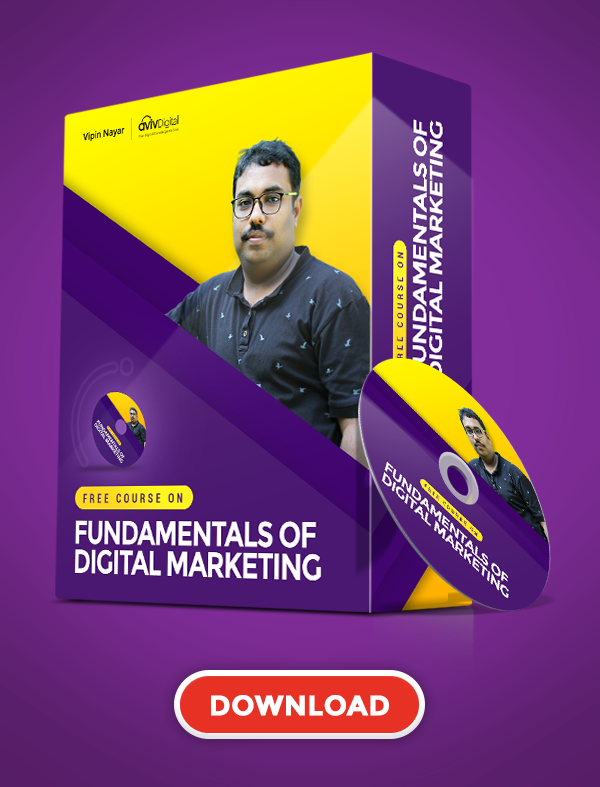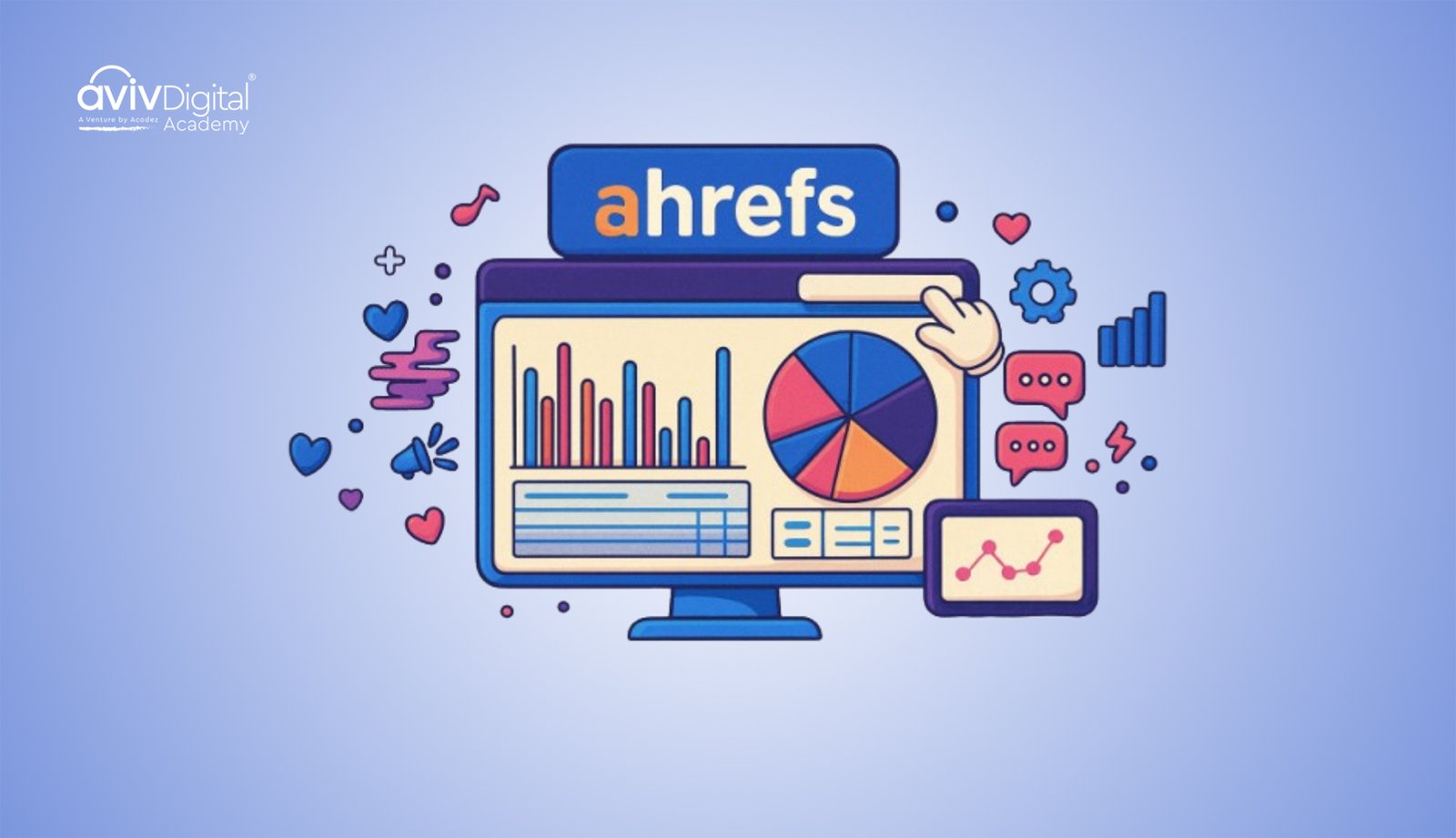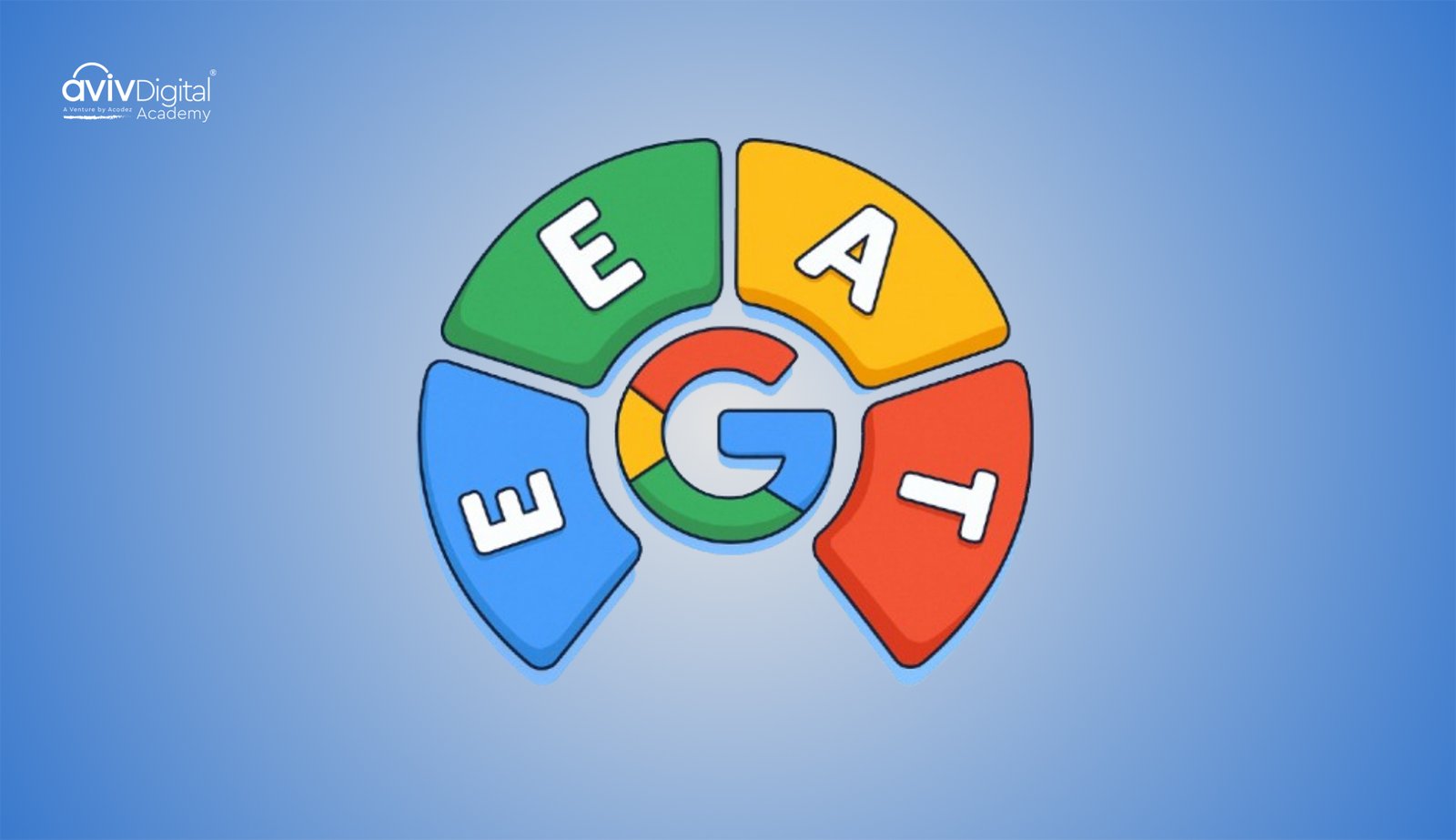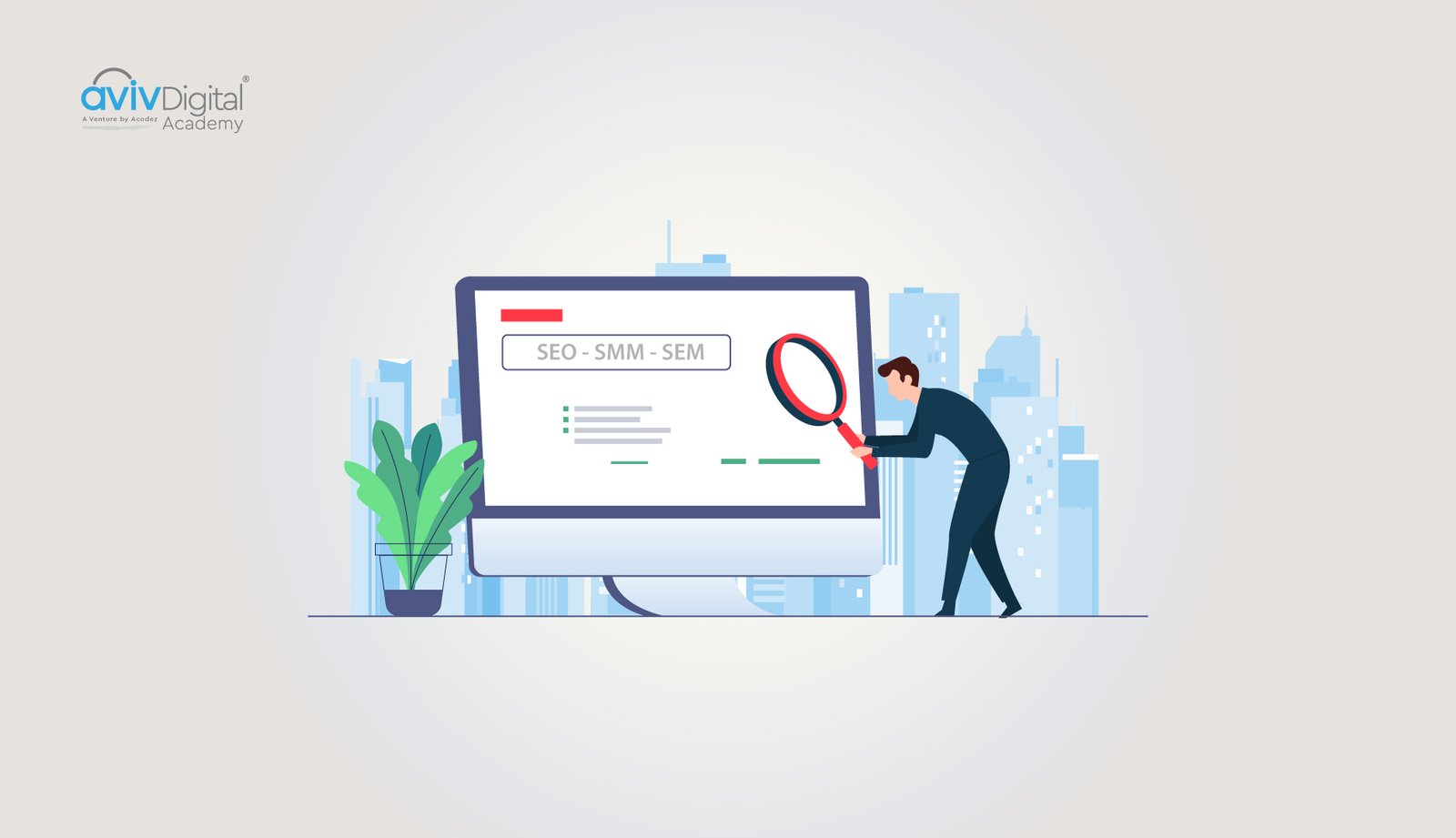
Digital Marketing as a whole has split or categorised its expertise or specialisation in order to be more precise and effective. It has then been categorised into Search Engine Optimisation, Social Media Manager and SEM. Picking a career out of these is a big task right after pursuing a Digital marketing course. Each has its own strengths and weaknesses, with you choosing what’s ideal according to your skill and personality to benefit in the long run. Here are some tips and a guide for you on how to choose between SEO, SEM and social media marketing as a career path.
What are SEO, SMM and SEM?
To move on further, let’s skim through what is or what you know about SEO, SMM and SEM to polish what you have learned so far, starting with
Search Engine Optimisation (SEO)
Search Engine Optimisation is the process of improving and enhancing the website to increase visibility, build brand awareness and see more traffic with the help of keywords and other strategies.
Search Engine Marketing (SEM)
Search Engine Marketing involves paid strategies to gain visibility on search engines. It utilises Google Ads and Pay-per-click advertising and bids on relevant or highly searched keywords to show your ad when people search for it, and you must pay for each click.
Social Media marketing (SMM)
Social Media marketing or SMM uses popular social media platforms like Instagram, Facebook (owned or known as Meta), X (formerly Twitter and LinkedIn to promote and advertise brands’ products or services. To promote an expert who creates engaging and entertaining content, along with collaborating with influencers, as well as running paid ads, often.
What are the Job’s Roles and Responsibilities in Each?
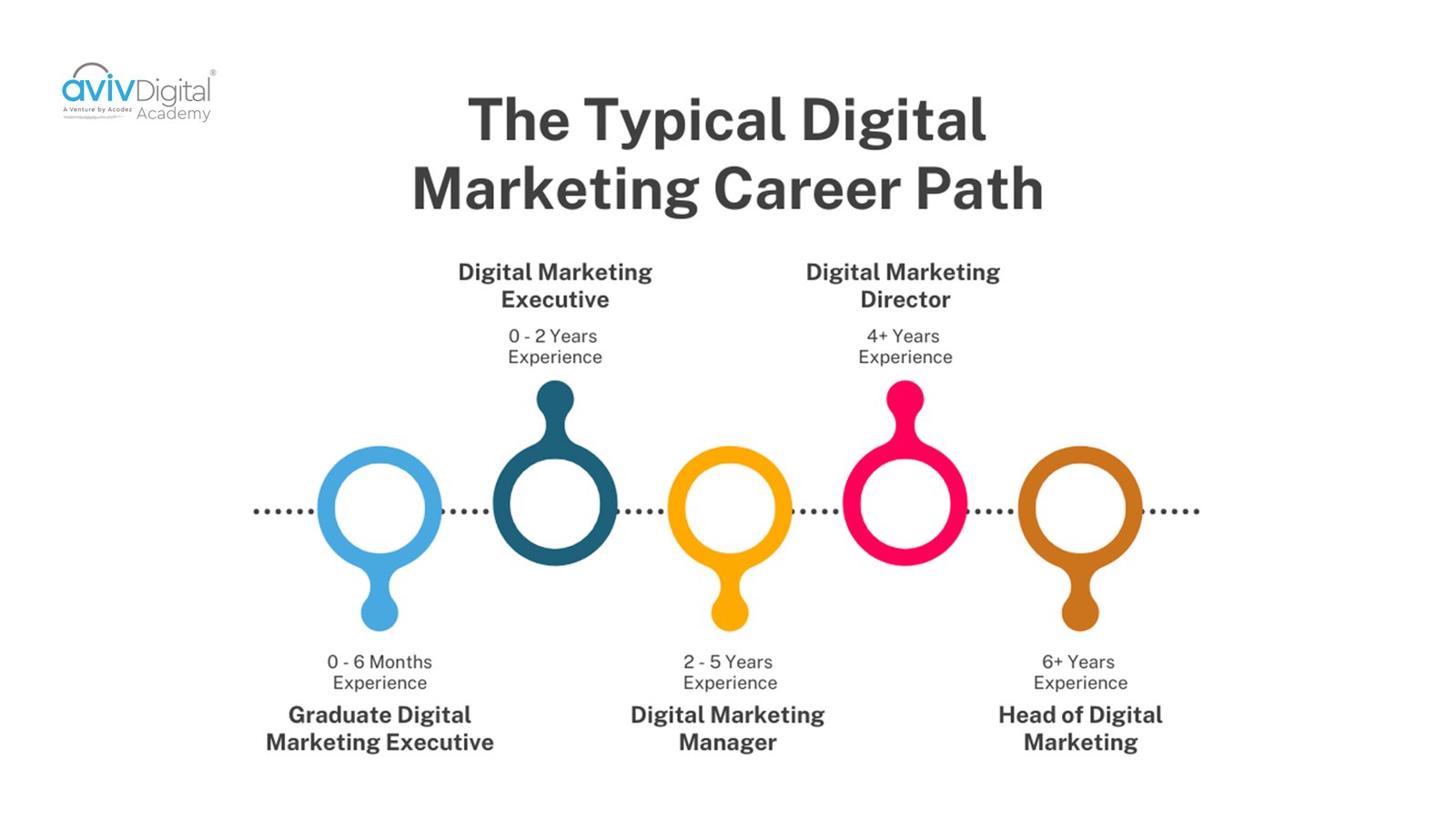
As you may have polished your idea of SEO, SEM, and SMM, let’s look at each of the careers as a profession, including their roles and responsibilities, to see what aligns with your skill, personality and interest for a great career. According to recent industry data, job postings for digital marketing roles have grown by 22% annually since 2020. SEO, data analytics, and social media management are among the top skills required for digital marketing roles.
- SEO: An SEO professional, such as an SEO analyst, focuses on organic search visibility by implementing the right, relevant and performing keywords, optimising site and technical SEO factors like site speed, crawlability and much more. This is ideal if you are into technical stuff and are creative enough to rank higher in search engines.
- A SEM or PPC specialist does paid ads to acquire potential customers or clients bidding on the right keywords, copywriting to grab audiences, and creative landing pages. If you are creative enough to create short copies to hook the audience and create landing pages that perform well for Key performance indicators like ROAS and CPA, a SEM or PPC expert is ideal for you, not to mention thorough planning and proper budget allocation for running the campaigns, highlighting skills like management and finance. You can choose these in case that’s your strength.
- Social media managers obviously manage multiple social media accounts and create or enhance, and promote content. Everyone uses social media these days, and if you are among those who enjoy it, opt for a career in Social media management. Other top skills required include planning and scheduling, contacting influencers.
Why is Each Role Important?
Let’s understand why each role is necessary for brands and businesses to grow or expand their success. Each career option comprises its own benefits and drawbacks if you can’t choose the right option.
- When it comes to SEO, brands and businesses are in need of organic visibility to establish themselves cost-efficiently in the long run by building authority. SEO is the ideal process for these goals, and an SEO expert is the one needed to achieve these goals.
- SEM is relied upon for quick results, such as visibility or appearing in high-intent searches. SEM professionals are necessary here for new launches, promotions and using competitive keywords
- Social Media management experts are arguably the most in-demand skill or professional for brands and businesses. As most online users tend to spend time in Social Media, establishing brand status, increasing discovery by content feeds and creatives. It should also be ideal for SEO and SEM
Demand for SEO, SEM and SMM Career Paths

In Digital marketing, the demand for these skills is growing. Therefore, a future-oriented and successful career is guaranteed. According to LinkedIn, Digital Marketing jobs mostly prioritise SEO and SMM among the top skills recruiters look for in a candidate. SEMRush amongst the leading Digital marketing tools or platforms that reports using AI and automation as an industry trend, increasing more requirement for labour and human expertise with these skills. The digital marketing landscape is experiencing unprecedented growth, making these specializations highly attractive career choices. Digital marketing’s compound annual growth rate is expected to be 17.6% between 2021 and 2026, indicating sustained demand for specialized professionals
What Career Path to Choose Between SEO, SEM and SMM?
In case you are confused between what to pick and struggle to make a decision, think about what suits your personality or skill the best. After learning a top Digital marketing course, you might be aware of your strengths and weaknesses. For further clarification:
- Define what you like or prefer: If you are looking for quick results, with skills like planning and adjusting budgets for cost-effective results. SEM tends to be a better choice.
- Analyse your technical and creative skills: If you are quantitative-minded minded along with creativity, SEO with its metrics and Social media contributing to SEO would be a great starting point
- Confirm if you’re into long-form content: The key difference between SEO and SEM or ADs is Short-form and long-form content. For short-form content, opt for a role as SMM or PPC specialist and SEO for Long-form.
- Define working structure: Amongst different modes of work, choose what’s more flexible or ideal for you. Social media Management and SEO can be done freelancing, and you only choose if that is convenient or the ideal option for you. Since running ad campaigns and becoming an SEM or PPC expert might require access to budgets, ad accounts, and so requires you to not opt for freelance work for the best working experience and for a fulfilling career.
- Balancing between risk and reward: SEM tends to or expects specialisations in high-performance roles, especially with e-commerce or large ad spends.
Even if you are opting for a specific role, ensure you learn everything with a Digital Marketing course. This may sound impractical at times, but it’s actually worth it and helps you at times.
In conclusion, SEO, SEM and SMM are equally relevant and in demand, offering growth, salary and success in the future. Staying updated with newer forms of technology like AI by learning, adapting and being open is also crucial to stay relevant and nurture yourself as a professional digital marketer. By the end of this article, you may have made a decision on what to pick as a career path.
Aviv Digital Academy is one of the leading Digital Marketing course in Calicut. We offer a wide variety of globally recognized certification programs that include SEO, SEM, SMM, Email Marketing and Inbound Marketing courses. For more details, contact us at: +91 8156998844
FAQ
1. Which has the fastest career growth among SEO, SEM and SMM?
Based on current market data, social media marketing shows the fastest growth with an 11% projected growth rate from 2020 to 2030, nearly double that of general marketing roles. However, SEM professionals command the highest average salaries at ₹21.8 lakhs, making it attractive for rapid financial growth.
2. Can I switch roles between SEO, SEM and SMM?
Absolutely! You can switch between these three after having enough experience or what is required at the specific time. Ensure you are open to learning and updating your expertise to grow.
3. Do I need coding knowledge for Digital marketing or these skills?
It would be great if you did, but it’s not necessary to have intense coding language knowledge.



